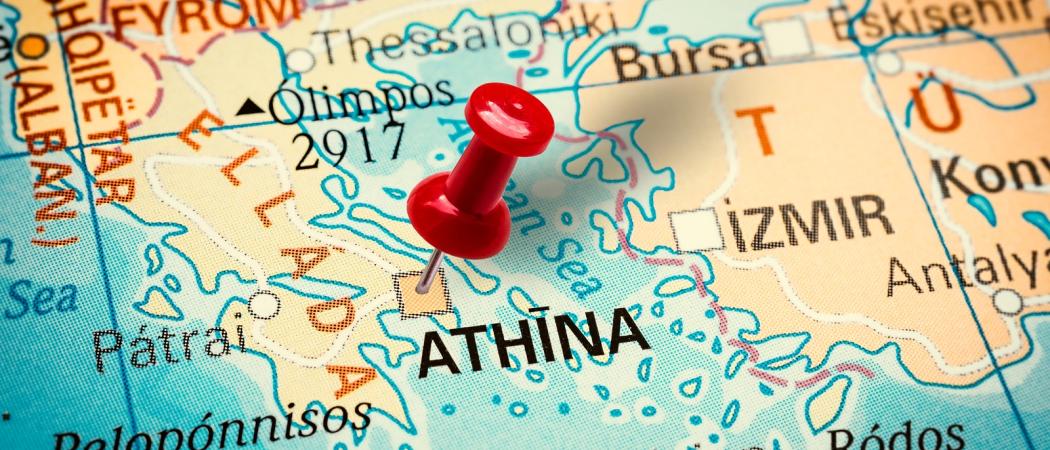OECD survey shows countries that were hardest hit by the 2008 crisis fear the global recession following in the pandemic’s wake will stifle R&D budgets and spark a new brain drain

Greece is one of the countries in Europe that have been hard hit by economic crises. Photo: Bigstock
Countries that saw their research budgets slashed by austerity measures in the aftermath of the 2008 financial crisis are worrying the recession set in train by the pandemic could have even worse effects on R&D systems.
In a survey by the OECD on how governments around the globe are adjusting research and innovation policies in response to the pandemic, European countries voice their worries about the potential effects of a recession on national research systems.
In the survey, the European Commission said it expects public and private R&D investments in the EU to drop by €3.9 billion, accounting for 1.3 per cent of the total spending foreseen for 2020.
The Greek government said the recession caused by the COVID-19 pandemic will have “a particularly negative impact” on the public research system but also on corporate R&D, and there are fears brain drain could become a serious problem once more.
Greece and other countries that have been hard hit by economic crises in the past are “fearful that this might be an issue arising in this context,” Caroline Paunov, senior economist and head of OECD’s Working Party on Innovation and Technology Policy told Science|Business.
Greece was one of the EU member states most affected by the financial crisis in 2008. By 2011, Greece’s GDP had shrunk by 6.9 per cent as 111,000 companies went bankrupt and youth unemployment went over 54 per cent.
The country lost tens of thousands of its brightest minds. The same happened, albeit at a smaller scale, in Croatia, Italy, Portugal, Slovenia and Spain.
In Greece, the bulk of R&D funding is from EU’s structural funds and is managed through the National Strategic Reference Framework (NSRF). Companies getting R&D money from structural funds are facing “severe liquidity problems,” the government said. As a result, they will not be able to comply with EU regulations and be eligible to receive the instalments foreseen in funding contracts.
Extend deadlines
The Greek government plans to negotiate an extension to eligible expenses, warning of a “particularly high” risk of delays and failure to complete EU-funded R&D projects. “Such a development would have disastrous consequences for the businesses themselves, but also for the absorption of [structural funds],” the government told the OECD.
For research funded from the national budget, the Greek government has already extended deadlines for submission of new proposals. In addition, it has taken steps to speed up evaluations of ongoing projects and stick to planned payment schedules.
Before the pandemic, the Spanish government was working on a new strategy for research and innovation which is now being revised to reflect the impact of the crisis which, the government says, will have “a dramatic negative impact” on Spain’s R&D system.
Following the 2008 financial crisis, Spain began to slowly increase its R&D expenditure from 2013, but the COVID-19 pandemic could impact the upturn, the government told the OECD.
To better prepare R&D systems for future pandemics or other events with global repercussions, the Italian government is calling for improved joint foresight action in the EU, which would use the European Open Science Cloud as a platform for sharing data and best practices in epidemiology and prevention. “We should recognise that our ability to anticipate troubles looming on the horizon was, at best, inadequate,” the government said in the survey. “Italy sees this as one of the priorities for the European Open Science Cloud which is now entering into operation.”
Rolling survey
Senior analyst Michael Keenan, said the OECD sent out the survey to countries on all continents and it has received input from 45 governments so far. The US and China have not responded to the OECD yet, while Canada and India are working on it.
The OECD is will keep the survey open for at least three months during which governments can update information as the impact of the pandemic on R&D systems is being reassessed. “We are experimenting with few [different] solutions to keep track of changes,” said Keenan.
“The idea is to track information and policies as they evolve over time,” Paunov said.





 A unique international forum for public research organisations and companies to connect their external engagement with strategic interests around their R&D system.
A unique international forum for public research organisations and companies to connect their external engagement with strategic interests around their R&D system.